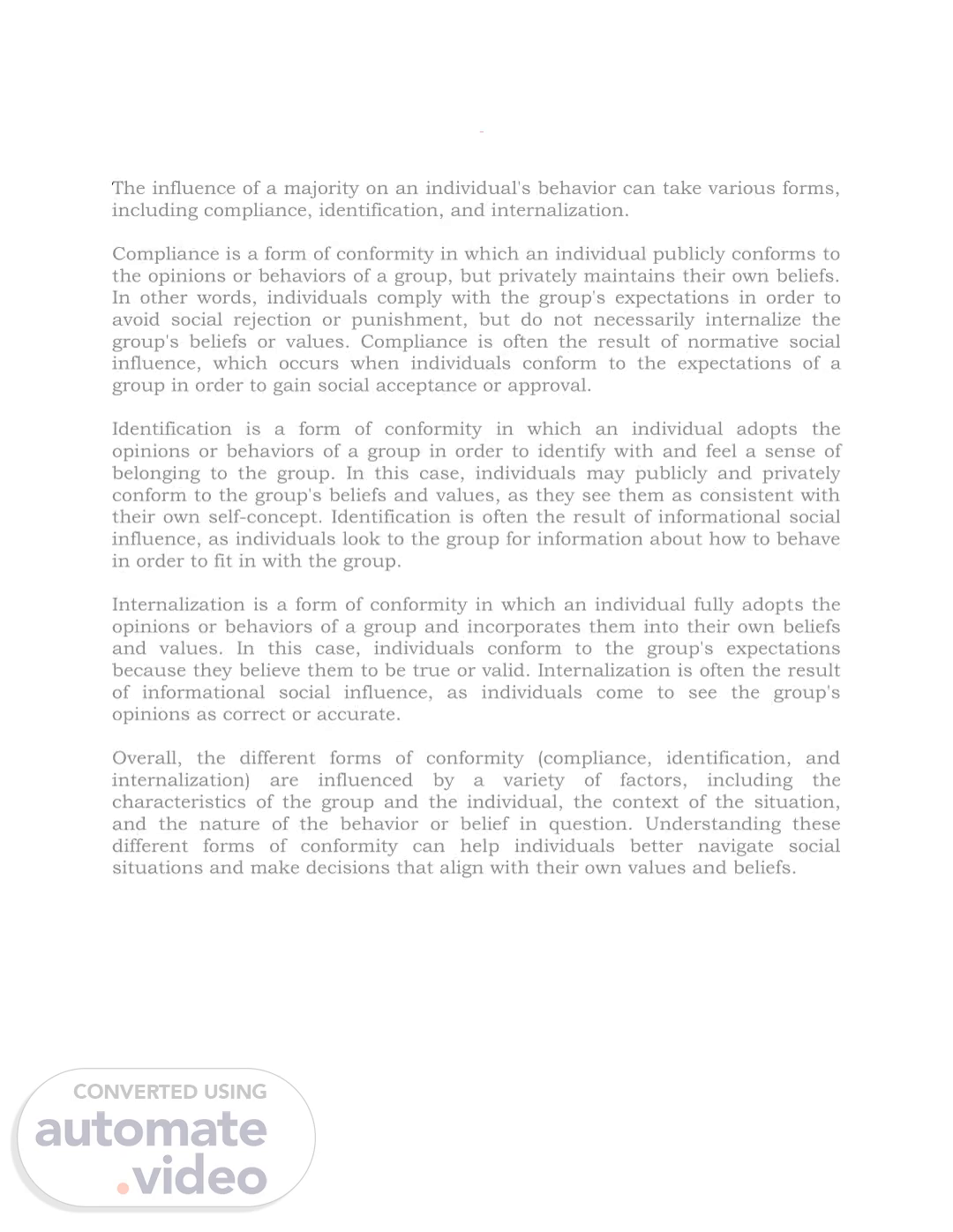
Page 1 (0s)
[Audio] Conformity - Majority influence The influence of a majority on an individual's behavior can take various forms, including compliance, identification, and internalization. Compliance is a form of conformity in which an individual publicly conforms to the opinions or behaviors of a group, but privately maintains their own beliefs. In other words, individuals comply with the group's expectations in order to avoid social rejection or punishment, but do not necessarily internalize the group's beliefs or values. Compliance is often the result of normative social influence, which occurs when individuals conform to the expectations of a group in order to gain social acceptance or approval. Identification is a form of conformity in which an individual adopts the opinions or behaviors of a group in order to identify with and feel a sense of belonging to the group. In this case, individuals may publicly and privately conform to the group's beliefs and values, as they see them as consistent with their own self-concept. Identification is often the result of informational social influence, as individuals look to the group for information about how to behave in order to fit in with the group. Internalization is a form of conformity in which an individual fully adopts the opinions or behaviors of a group and incorporates them into their own beliefs and values. In this case, individuals conform to the group's expectations because they believe them to be true or valid. Internalization is often the result of informational social influence, as individuals come to see the group's opinions as correct or accurate. Overall, the different forms of conformity (compliance, identification, and internalization) are influenced by a variety of factors, including the characteristics of the group and the individual, the context of the situation, and the nature of the behavior or belief in question. Understanding these different forms of conformity can help individuals better navigate social situations and make decisions that align with their own values and beliefs..